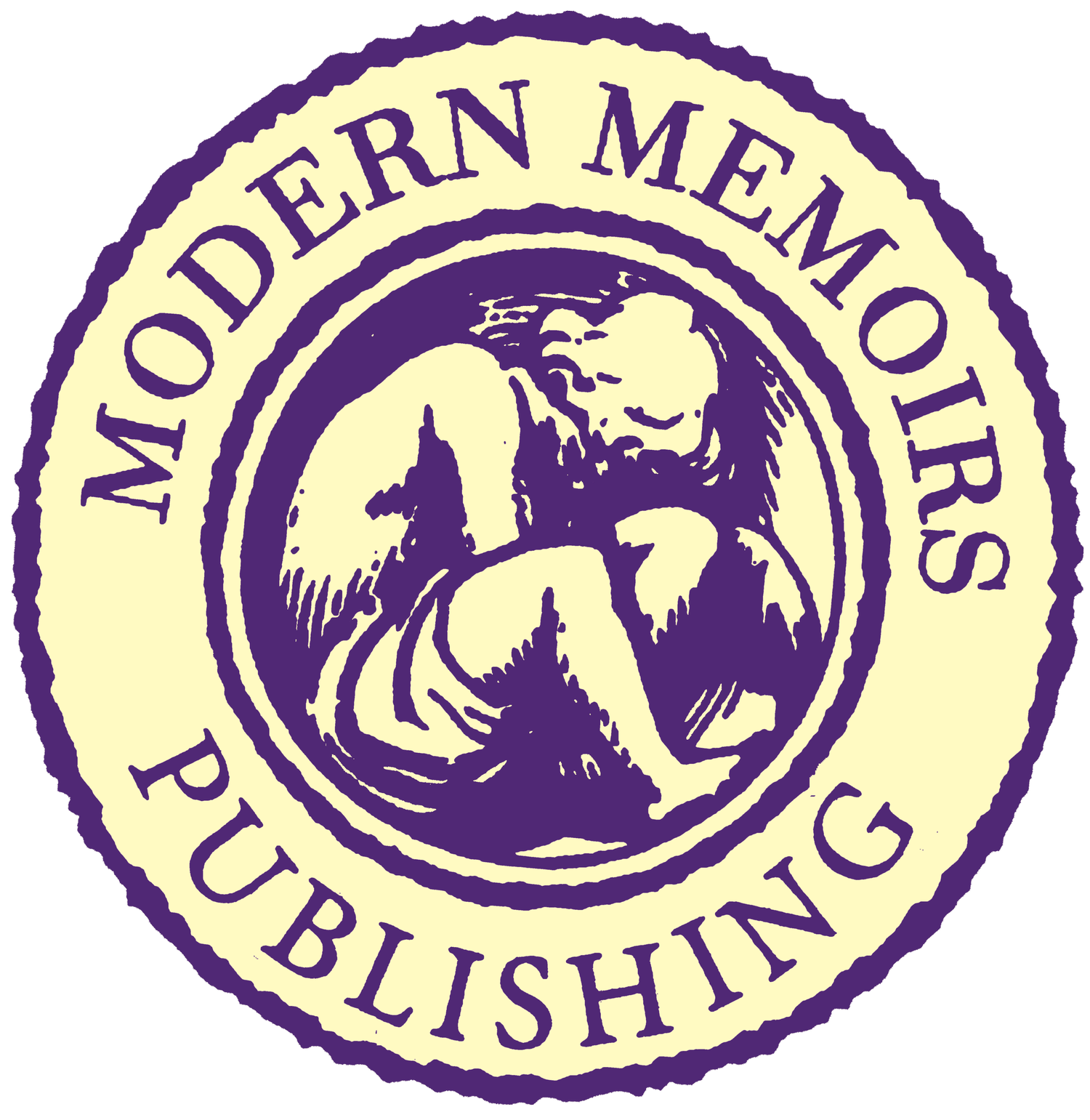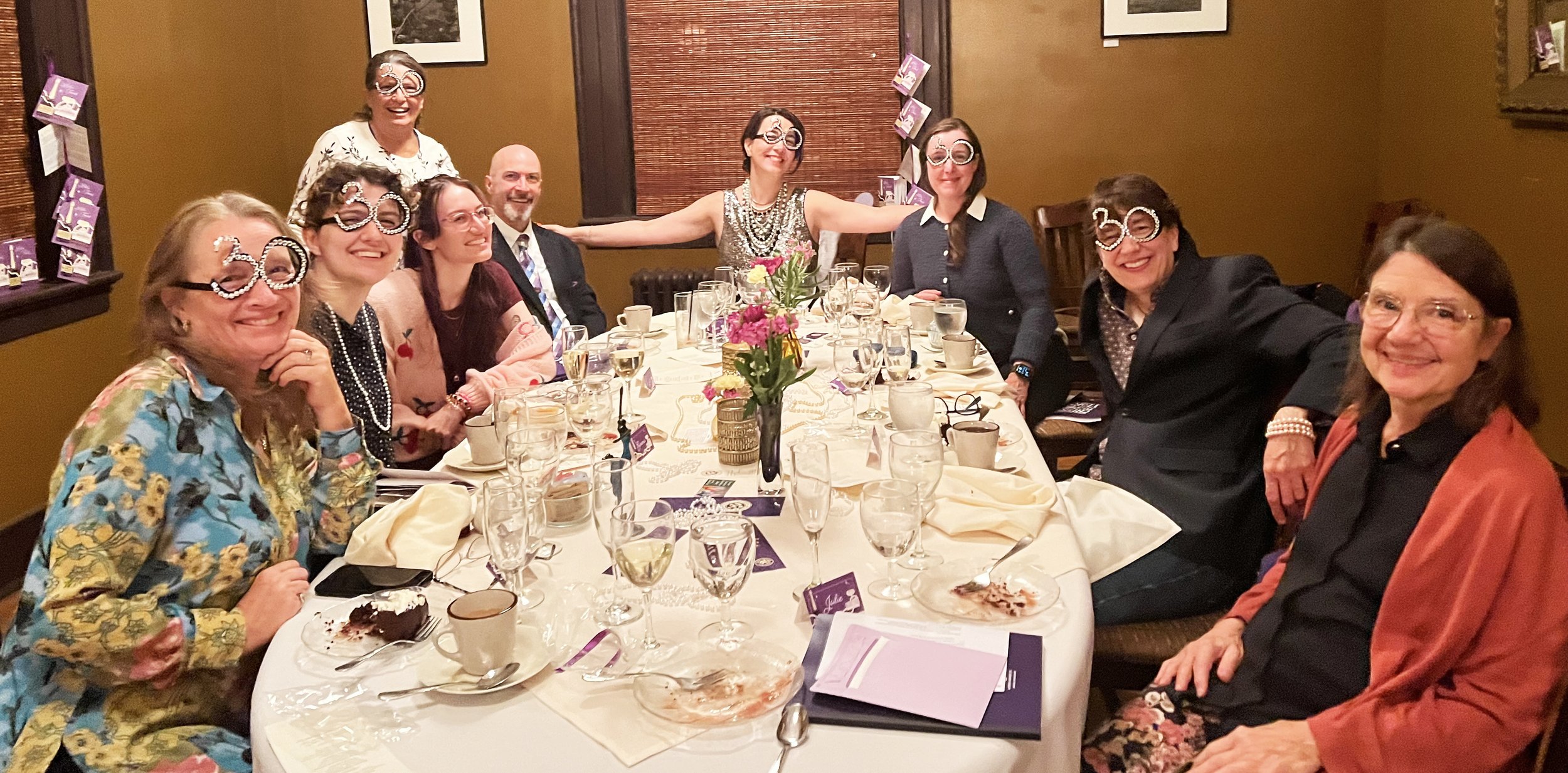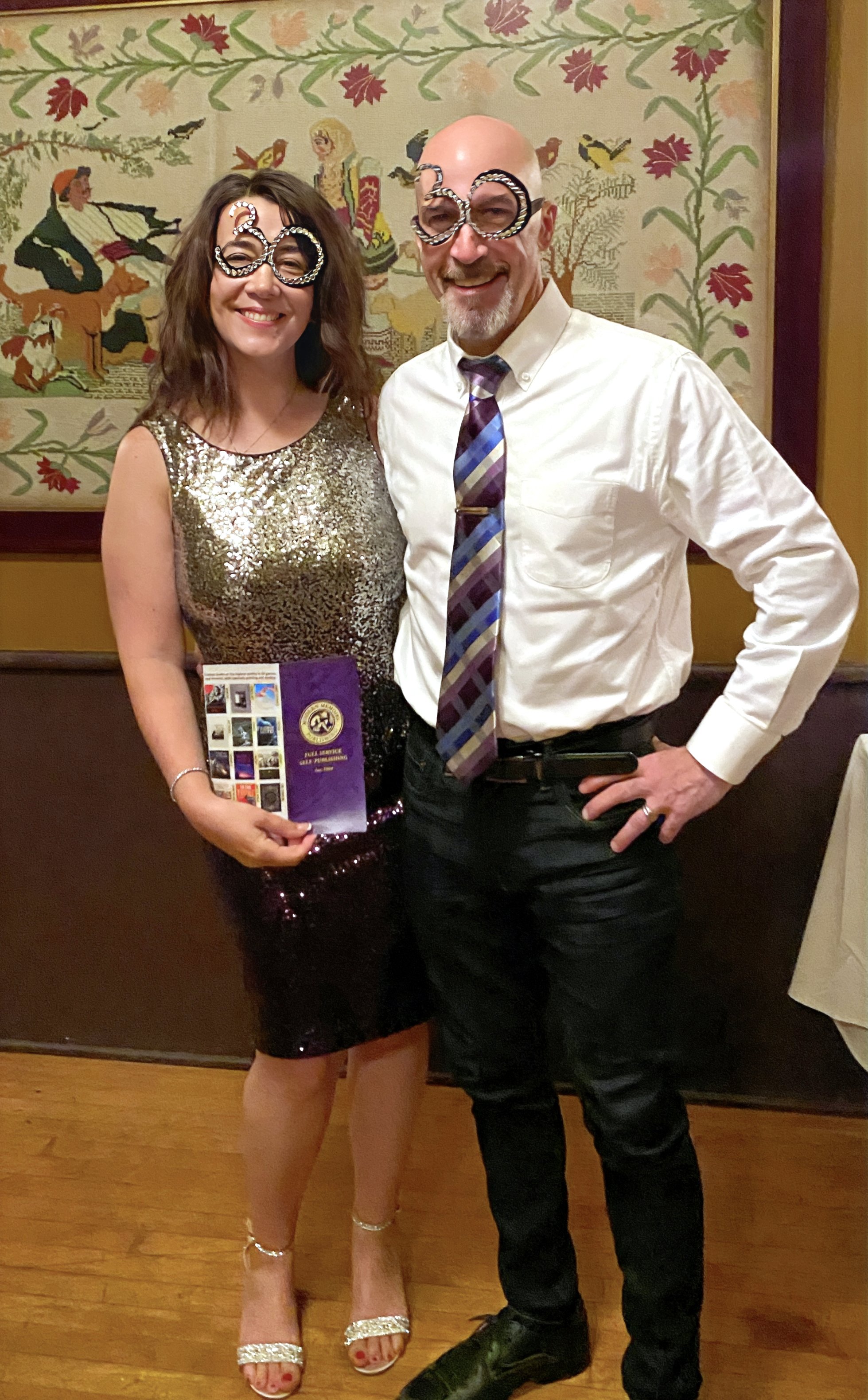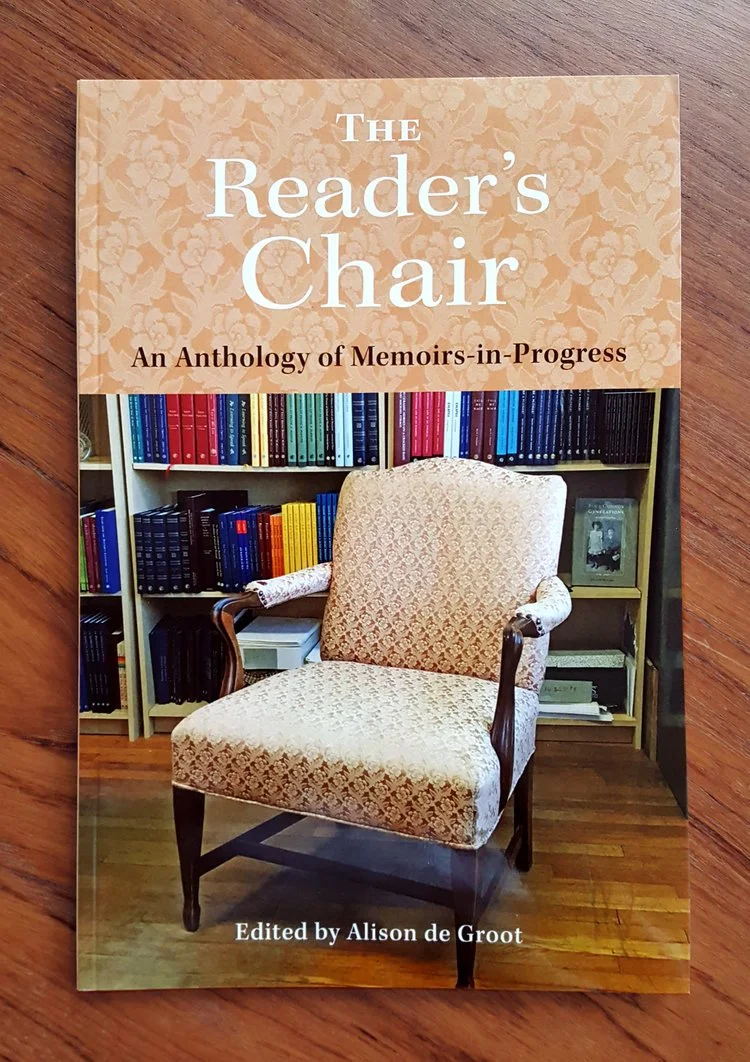Modern Memoirs staff and guests at the Blue Heron Restaurant celebrating the company's 30th anniversary, September 2024
On September 27, 2024, company owners Megan and Sean St. Marie hosted a dinner at the Blue Heron Restaurant in Sunderland, Massachusetts celebrating the 30th anniversary of Modern Memoirs. The following is a toast they gave in honor of founder and retired president,
Kitty Axelson-Berry.
Company founder Kitty Axelson-Berry at the dinner celebrating Modern Memoirs' 30th anniversary, September 2024
Sean: Kitty, on the occasion of Modern Memoirs’ 30th anniversary, it brings Megan and me great joy to have this opportunity to celebrate you. After all, Modern Memoirs would not exist without your vision, your guts, your talents, and your heart. We are honored to carry on the legacy you created because we share the core value on which it is premised: that sharing one’s life story and preserving family history are among the greatest gifts a person can give.
Kitty looking at a statue of a woman holding an open book, gifted to her in honor of Modern Memoirs' 30th anniversary
Megan: When you retired and we bought the company in 2019, we inherited a beautiful archive of books that you had a hand in creating, and with it a loyal and grateful client base that gave us the confidence we needed to succeed. Yours were impossibly big shoes to fill, however, and I admit I was shaking in my own boots when life threw us a curveball a few months after the sale of the business and Sean took his job at the Dickinson Museum instead of staying at Modern Memoirs with me on a day-to-day basis. With no background in business, and way too much on my plate in other parts of my life, I took inspiration from your entrepreneurial courage at some of my most anxious, overwhelmed moments and would say to myself, “I will not let Kitty down!” And although I was determined to respect your happy retirement, I also knew that you wanted the business to succeed under our ownership and that you would be there for me as I got my bearings and forged ahead.
Megan and Sean St. Marie
Sean: Under Megan’s leadership, we’ve strived to live up to the nurturing and supportive company culture you established as an employer, and to meet the high standards you held for both bookmaking and client relationships. You’ve told us that we’ve done you proud, and in return, we want to express our gratitude to you. Business ownership was not a dream of ours until we met you, and this unexpected chapter in our life story is one for which we are profoundly thankful.
Megan: Owning Modern Memoirs has enhanced our lives in both practical and intangible ways, and we want you to know, Kitty, that this is part of your legacy, too: you built something that has changed our family’s life story for the better, and that has, in turn, enabled us to offer fulfilling, purpose-driven work to our staff while continuing Modern Memoirs’ mission.
Sean: And at five years in, we’ve only just begun! You led this company for its first quarter-century, and we’ve had a fifth of that time to put our mark on it. We don’t know what the future holds, but the success we’ve enjoyed so far and the gratitude we feel for you and your vision fill us with optimism and inspiration.
Megan: So, let’s all raise a glass to Kitty, and to the thriving company she created, Modern Memoirs, Inc. Cheers to 30 years!
Photo by Jason Lamb Photography
Megan St. Marie is president of Modern Memoirs, Inc.


















